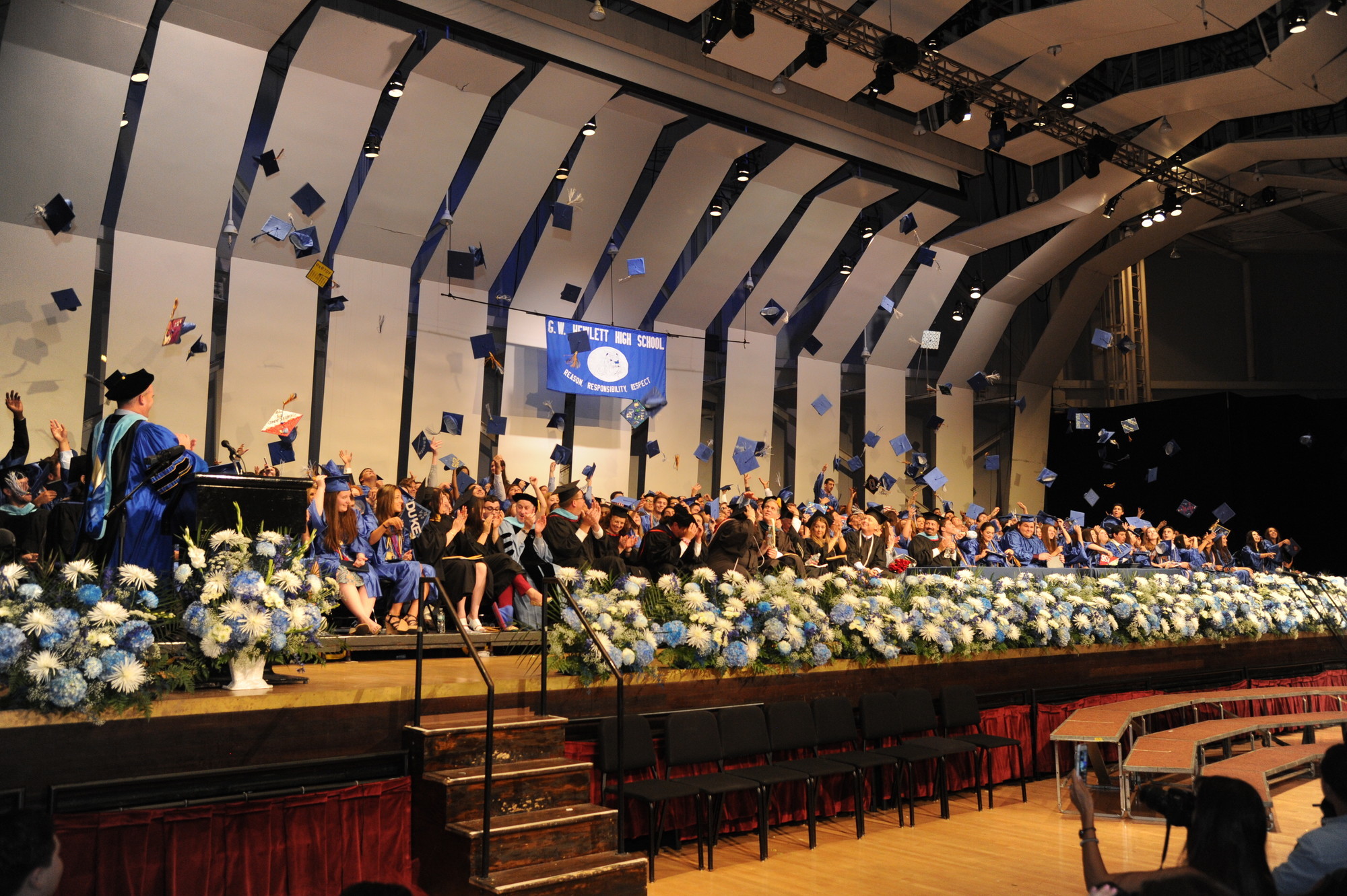Working on boosting graduation rates
Lawrence and Hewlett focus on data and increased instruction
Lawrence and Hewlett-Woodmere school district officials say they believe the work they are doing is boosting classroom performance and will translate to higher graduation rates, while guiding students to college or careers after high school.
“Students should have more ways to earn a diploma and realize those opportunities,” State Education Commissioner MaryEllen Elia said in a release focusing on graduation rates. “This is not about changing our standard. It’s about providing other avenues for kids to show what they know so they can graduate.”
Pointing to an increase of 8 percent in June high school graduation rates and a 10 percent increase in August graduations since 2010, Lawrence district officials say they think they are on the right track.
Deputy Superintendent Dr. Ann Pedersen, who oversees curriculum and instruction, said that administrators and teachers are using test results to pinpoint the specific areas of a subject in which students are the weakest. “The data is driving our support,” she said. “A particular focus is raising reading-level performance, increasing instruction for [English as a New Language] students with bilingual staff, and credit-recover options.” The credit-recovery choices include repeating a failed class, and independent study.
in 2015 32.6 percent of Lawrence High School seniors graduated with a Regents Diploma with Advanced Designation, in 2014 it was 26.3 percent and in 2013, 31.3 percent. The degree requires more vigorous coursework. Pedersen said it is important to address the students’ lack of language skills and limited vocabulary, which are associated with the lower socioeconomic spectrum. Some 70 percent of district students are eligible for the federally funded free lunch program.
Lawrence is focusing earlier on what its students need to be accepted by colleges, giving presentations to eighth-graders about the credit requirements for high school graduation and the impact grades have on college choices. The district is “advertising” college to its high school students by posting signs that tout the benefits of college and listing the schools that graduates have attended, Pedersen said.
Hewlett
Hewlett High School’s graduation rate dipped to 95 percent in 2015, compared with 98 percent the previous two years, but what is more concerning to district officials is the decline in the percentage of students earning advanced diplomas — from 68 percent in 2013 to 63 percent in 2014 to 60 percent in 2015.
Mark Secaur, the assistant superintendent for curriculum and instruction, said that expanded classroom opportunities and a boost in academic support for students should have an impact. “An increase in the number of students taking Regents-level algebra in the eighth grade will lead to additional opportunities to take higher-level math in high school, a key determinant for achieving the advanced Regents diploma,” Secaur said. “One form of support was the addition of lab classes that utilize instructional technology in a blended learning approach.” Blended learning is a mix of traditional classroom learning and technology-driven instruction.
Students with disabilities
Both Lawrence and Hewlett are focused on helping students with disabilities graduate, and helping those who are not headed to college get a head start on a career. Lawrence boosted disabled students’ graduation rate from 44 percent in 2014 to 51 percent in 2015. Pedersen said the improvement is attributable to “careful monitoring” of students earning credits and providing them the needed support to recover credits.
Hewlett’s graduation rate for disabled students dropped from 94 percent in 2013 and 2014 to 83 percent last year. “While [it] far outpaces the percentages at the state and county level, we always look for ways to improve,” Secaur said. “To that end, we have sought to continue the development of existing programs as well as expand in areas that we believe will assist our students.”
Job coaches
For students who are not on a college track, Lawrence provides an alternative. “One of the finest additions to our programs … is the use of vocational job coaches that take students into the community for work experience,” Pedersen said. “This exposure and feedback on work performance, coupled with interviewing skills, prepare the career-bound students.”
Using the connections students form with teaching assistants, Hewlett hopes to guide non-college-bound students to productive careers. “Our paraprofessional staff does an excellent job getting to know their students and families,” Secaur said. “We believe that these trusting relationships lead to better decisions and outcomes.”






